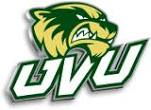What do they do?
Repair and adjust electrical and mechanical equipment of inboard or inboard-outboard boat engines.
Also known as:
Boat Mechanic, Boat Motor Mechanic, Boat Rigger, Marine Mechanic, Marine Propulsion Technician, Marine Technician, Mechanic, Outboard Motor Mechanic, Outboard Technician, Service Technician
-
4.9%
Change
Ranks #N/A in job growth rate50Job Openings
Ranks #N/A in net job growth
-
IYRS School of Technology & Trades
Newport, RI
-
The Landing School
Arundel, ME
-
Great Lakes Boat Building School
Cedarville, MI
-
Automeca Technical College-Bayamon
Bayamon, PR
Looking for colleges that offer a specific major? Use the College Match Tool to find your best-matched schools and discover your estimated Net Price!
- Doctorate or Professional Degree (<1%)
- Master's degree (<1%)
- Bachelor's degree (5%)
- Associate's degree (11%)
- Some college, no degree (28%)
- High school diploma equivalent (44%)
- Less than high school diploma (12%)
People in this career often have these skills:
- Repairing - Repairing machines or systems using the needed tools.
- Equipment Maintenance - Performing routine maintenance on equipment and determining when and what kind of maintenance is needed.
- Troubleshooting - Determining causes of operating errors and deciding what to do about it.
- Operation and Control - Controlling operations of equipment or systems.
- Operations Monitoring - Watching gauges, dials, or other indicators to make sure a machine is working properly.
- Critical Thinking - Using logic and reasoning to identify the strengths and weaknesses of alternative solutions, conclusions, or approaches to problems.
People in this career often know a lot about:
- Mechanical - Knowledge of machines and tools, including their designs, uses, repair, and maintenance.
- Customer and Personal Service - Knowledge of principles and processes for providing customer and personal services. This includes customer needs assessment, meeting quality standards for services, and evaluation of customer satisfaction.
- Computers and Electronics - Knowledge of circuit boards, processors, chips, electronic equipment, and computer hardware and software, including applications and programming.
- English Language - Knowledge of the structure and content of the English language including the meaning and spelling of words, rules of composition, and grammar.
- Mathematics - Knowledge of arithmetic, algebra, geometry, calculus, statistics, and their applications.
People in this career often have talent in:
- Problem Sensitivity - The ability to tell when something is wrong or is likely to go wrong. It does not involve solving the problem, only recognizing that there is a problem.
- Deductive Reasoning - The ability to apply general rules to specific problems to produce answers that make sense.
- Inductive Reasoning - The ability to combine pieces of information to form general rules or conclusions (includes finding a relationship among seemingly unrelated events).
- Arm-Hand Steadiness - The ability to keep your hand and arm steady while moving your arm or while holding your arm and hand in one position.
- Manual Dexterity - The ability to quickly move your hand, your hand together with your arm, or your two hands to grasp, manipulate, or assemble objects.
- Finger Dexterity - The ability to make precisely coordinated movements of the fingers of one or both hands to grasp, manipulate, or assemble very small objects.
- Control Precision - The ability to quickly and repeatedly adjust the controls of a machine or a vehicle to exact positions.
- Near Vision - The ability to see details at close range (within a few feet of the observer).
People in this career often do these activities:
- Observe equipment in operation to detect potential problems.
- Document test results.
- Position equipment using hand tools, power tools, or heavy equipment.
- Repair defective engines or engine components.
- Service vehicles to maintain functionality.
- Replace worn, damaged, or defective mechanical parts.
- Inspect mechanical components of vehicles to identify problems.
- Adjust vehicle components according to specifications.
- Align equipment or machinery.
- Repair non-engine automotive or vehicle components.
- Disassemble equipment for maintenance or repair.
- Adjust equipment to ensure optimal performance.
- Repair electrical circuits or wiring.
- Repair worn, damaged, or defective mechanical parts.
This page includes data from:

 Occupation statistics: USDOL U.S. Bureau of Labor Statistics Occupational Employment Statistics
Occupation statistics: USDOL U.S. Bureau of Labor Statistics Occupational Employment Statistics





